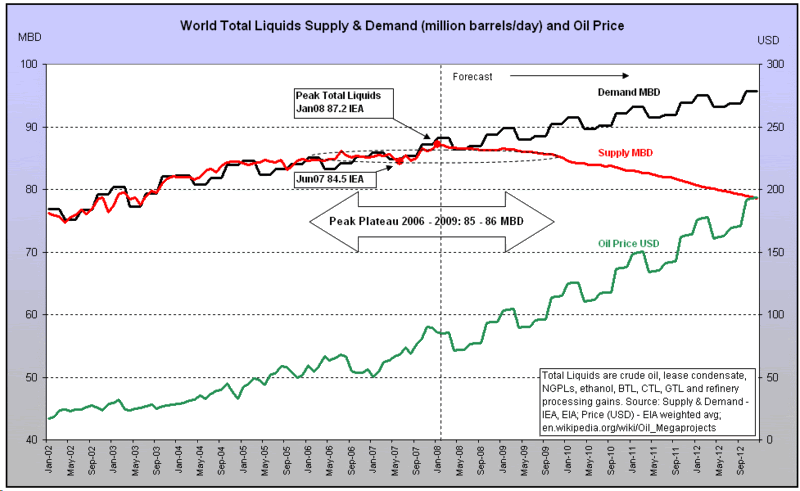When there is not enough oil to go around, what do you do?
You try to destroy demand, especially that of others, after which you have more oil to go around - relatively speaking.
Why? Oil is the lifeblood of the economy. Hike up the price too much or limit the availability and economy is constrained. And nobody wants a constrained economy. It's against the market fundamentalist ideology of our times.
Let's take another quick news round up from the recent past:
- OPEC refuses to take consumers' call
OPEC did not yet cut oil output, but is planning to do so later "in response to slowing down of the US economy." Newsflash: oil consumption is not markedly affected by the slowdown of US economy (see the 2001-2003 mild slowdown in US for a recent example). So, why is OPEC planning on cuts? Either they can't sustain the current production levels or they want a better price. Either way, if price continues to rise, it will results in some demand destruction, esp. in poorer countries.
- G7 calls for an end to oil subsidies in India, China
So, the richest G7 countries want the developing countries citizens to pay the same for their gasoline as the rest of the world. Reason: if every Indian and Chinaman had to pay the same as the average US consumer, there'd be much less oil demand in China and India. And hence, more available for the G7 countries.
- IEA increases 2008global oil demand forecast
So, IEA is in the same breath stating that in 2008 oil demand will rise while high price will also destroy demand (or more accurately that there will be a price related temporal demand response). Destruction or Response, it doesn't seem that even IEA believes that the current level of 'high price' (oil is actually relatively cheap!) will significantly reduce oil demand.
- What about the poor?
Poorer countries have already been forced to cut down on their demand of oil. However, this has not been enough to guarantee cheap prices and good availability for other customers. In a recent BIEE seminar demand destruction was discussed with the following notion: demand is not destroyed unless the destruction is permanent. Presumably this means dismantling of the oil based power infrastructure, that still prevails in many poorer countries.
But
does demand destruction work beyond the poorest of countries? In 2006 and 2007, the constant rise of oil prices mattered very little. Oil demand rose regardless of price and was not destroyed.
So, it is possible that in order to destroy demand, more drastic measures are needed.
This begs the question: what are these drastic measures?













